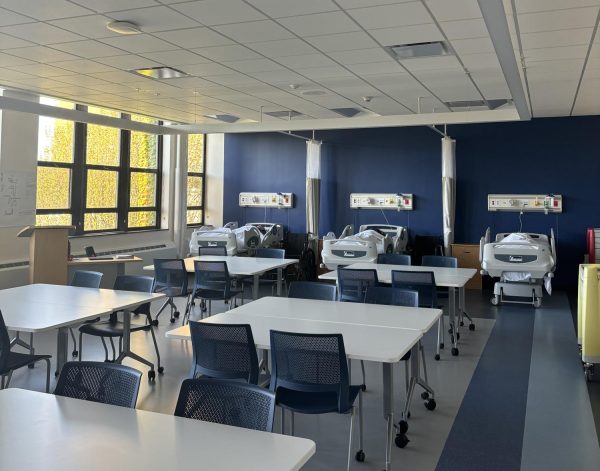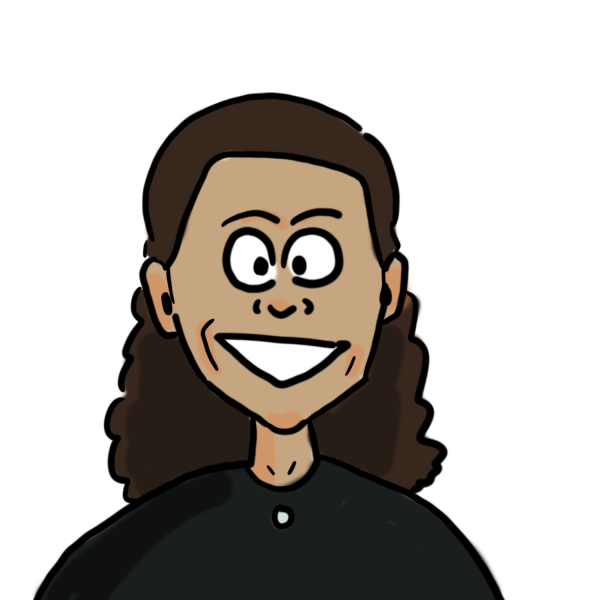Fall 2021 brings changes to ETHS
April 26, 2021
As ETHS begins the transition to in-person learning, the question of how the school will look and what changes will be made going forward is ever-present. On March 24, 2021, ETHS announced what some of those changes will be.
The letter sent out by the school stated that three major changes will be made starting in the 2021-2022 school year: all previously earned detentions and social probation will be cleared, semester exams will be eliminated and a permanent block schedule will be implemented.
When it came to clearing detentions and social probation, the choice to do so seemed obvious to many.
“When we come back to the school building, why would we have students have records of things that they did two years ago, a year and a half ago, that is hanging over their heads?” Associate Principal for Instruction and Literacy Scott Bramley said.
“I feel like that’s really what we all need: a clean slate to just clear our minds for this year, because it’s been so hectic trying to learn online,” junior Ava Daye commented.
Likewise, the decision to eliminate finals was one that had been in the works long before the pandemic.
“I’ve been in the district for eight or nine years now, and every year it’s come up,” said Bramley. “I think the committee that looked at this in the past has always come to the realization that there’s a difference of opinion; you don’t necessarily have a consensus, and maybe it’s not the right time to do this….We looked at those factors and said, ‘We have the time to do it right now because we’re changing.’”
Semester exams are a tradition that has been carried on for decades, but with reevaluation, ETHS has determined that the costs outweigh the benefits.
“One of the things that really comes up when you think about semester exams is how you lose a week or two of instruction, because you have a week of exams, and then you have the week leading up to that when there’s a lot of review and practice, and things kind of get suspended,” Bramley noted.
The March 24 letter stated, “ETHS has also recognized the need to address the amount of testing in high school, its impact on student wellbeing, and the need to increase instructional time. Eliminating semester exams may help students to better focus on their post-secondary options through their coursework.”
In the place of semester exams, some classes will be implementing a final project or essay.
“A final exam… is like a final demonstration of understanding of the course; there are ways to do that [which] are more connected to our current teaching practices, where we’ll still have an end of course experience, and [students] will still have final opportunities to demonstrate [their] learning that might be more project-based and might be more product-based,” Bramley commented.
For many teachers, this is a welcome change.
“The most important thing is it will take a lot of stress off of students because finals week is a very stressful week,” U.S. History and Economics teacher Julian Sotnick said. “I worry [a little] about the moral hazard that’s being created [by the fact that] students [can] pass first quarter, then [fail] second quarter and still end up passing the class… but, I also recognize the benefits.”
“We get two [additional] weeks of instruction….I don’t know that you can put a price on that because we have a lot of days off, which is not necessarily a bad thing, but…we’re constantly losing minutes with students, so [I think it will be great] to get those two weeks back,” Latin teacher Michelle Green said.
When students learned about the elimination of semester exams, reactions were overwhelmingly positive.
“I am beyond excited,” Daye said. “I think [finals] caused a lot of mental health issues at ETHS as well, because people are so scared about their grades and finals… having to remember [everything from] the entire year and doing it on one sheet that can literally make or break your grade is just so stressful.”
Some students, however, felt there were other things ETHS could be doing to reduce students’ stress.
“I think eliminating homework would be huge because that’s the day-to-day stress,” junior Ruby Winer said. “That’s what’s getting in the way of people doing extracurriculars and finding their passions and getting enough sleep. Finals are twice a year. Homework is every day.”
Nevertheless, the most controversial change is the implementation of a block schedule.
Beginning on August 16, the first day of school, students will attend 85-minute periods instead of the previous 42-minute periods, with school beginning at 8:30 A.M. and ending at 3:30 P.M. Students will still have all eight periods of class, but they’ll be spread out over two days, along with one of two designated 45-minute lunch periods. Wildkit Mondays will consist of every class meeting for 33-minutes, with school ending at 2:07 P.M. as existed before the COVID-19 pandemic.
“Benefits of the block schedule include fewer class transitions each day (and therefore a less hectic pace) and larger chunks of instructional time for more experiential, hands-on learning in all classes,” read the March 24 statement.
“We really wanted to see how we can slow the day down, allow for deeper instructional time… and also increase the passing period time so students don’t feel like they’re running back and forth from class to class,” Bramley said.
The student reactions to this change were generally less positive. Some students worried about the effect the block schedule will have on their learning.
“Already having 70-minute periods is just so painfully long, and honestly, I lose concentration and I get distracted,” Daye said. “I feel like it’s going to reflect on our grades in a really negative way… And for people that have mental health issues, like [ADHD], it’ll be harder for them.”
For many students, the block schedule feels like another big change in an already hectic time.
“From my point of view, it seems like everyone just wants to go back to normal, and that consists of a nine-period day,” Winer said. “We miss our teachers. We miss our friends. I want to see everybody. And by cutting that time in half every day, it doesn’t make it better, it makes it worse.”
For teachers, the block schedule will change the way they approach teaching; whether that’s for better or for worse remains to be seen.
“I can see some benefits of having longer periods because we have more time to delve into some interesting topics. Some costs might be that it’s difficult for students to keep their attention span that long… [we’ll] see how it goes,” Sotnick said.
“I feel that language is meant to be every single day for small bits,” Green said. “I think the block schedule is very conducive to very many subjects… [for] English, you can sit there with an idea or revisit a paper or read some history and then revisit it. I actually think that it has more benefits for a lot of classes, but I don’t think language is one of them.”
As far as whether the school will be in person next fall, that is a decision that remains uncertain.
“The plan is to be fully in-person in the fall, but we just do not know,” Bramley said. “We will continue to follow the IDPH and CDC guidelines and any guidance that comes from the governor and/or the state board of education.”

















